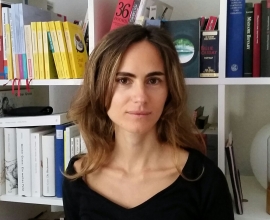Greater protection for corruption whistleblowers in Brazil
28/10/2015
PrintArticle by Luciana Torchiaro, Regional Project Coordinator, Transparency International Berlin
Improving whistleblower protection in Brazil is fundamental for combating corruption effectively, something that society has been demanding on an urgent basis for years. The evidence provided by victims and witnesses is fundamental for dismantling corrupt practices in all sectors and at all levels of society, and for promoting real changes that improve people's lives and enable effective enjoyment of human rights.
In Brazil, as in many Latin American countries, people feel that reporting corruption is not worth the effort because of the enormous risks this involves and the slim possibilities of success. People who report corruption are considered slanderers, they face threats and persecution, and they put their safety and physical integrity at risk. In 2015, for example, a journalist who reported a case of corruption involving child prostitution and drug trafficking was decapitated in Minas Gerais. These types of stories, unquestionably extreme and heart-wrenching, are repeated in other cities around the country.
Reporting is also difficult because citizens are often unaware of existing reporting channels provided by the State. Or because they know that these have limited capacities and resources for processing cases. In Brazil, judicial processes are slow, and the probability of cases going unpunished is extremely high. Lastly, during the judicial processes, whistleblowers do not enjoy adequate contention or protection mechanisms from the State. This clearly also discourages reporting.
The Anti-corruption Information Gathering and Legal Advice Centre in Brazil (CAIAC) is a mechanism created by Transparency International and EUROsociAL to promote citizen reporting under safe conditions and strengthening of the public authorities responsible for processing corruption cases. Inspired by the Advocacy and Legal Advice Centres (ALACs) for fighting corruption that operate in over 60 countries, CAIAC provides free and confidential legal assistance to corruption victims and witnesses so that they can exercise their rights. CAIAC works hand-in-hand with public authorities to streamline case processing and promote real changes based on the evidence provided by whistleblowers.
Several weeks ago, with the support of the European Union's EUROsociAL Programme, CAIAC Brazil was presented in São Paulo. Participants in the meeting included the centre's main partners, the Federal Public Prosecutor's Office, the Mayor's Office of São Paulo, the Catholic Pontifical University, the Amarribo Brazil NGO, several activists, journalists, and social supporters. All of them contributed ideas and suggestions for the centre and expressed their great satisfaction with its opening and hope for change. In the first pilot phase, CAIAC Brazil will operate in São Paulo. Later the service will be expanded to other corners of the country and be equipped to allow reporting of cases via smartphones and web platforms, something that the participants at the event considered crucial for reaching all latitudes of the South American giant.
Luciana Torchiaro, Coordinadora Regional de Proyectos, Transparencia Internacional Berlín

